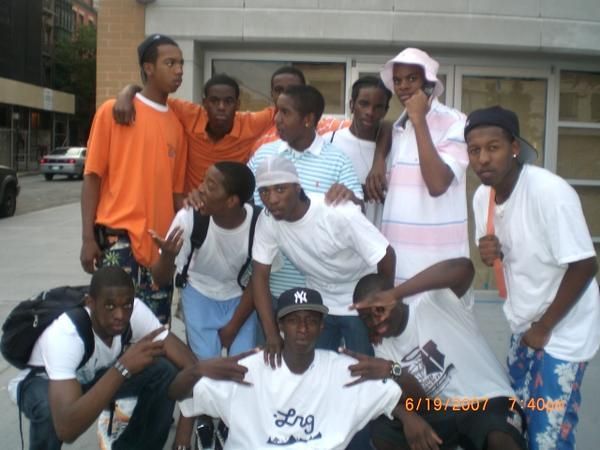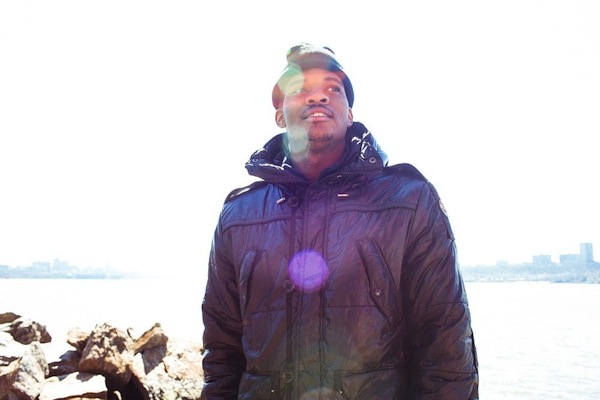When I was still in the classroom, Myspace, YouTube, and AOL Instant Messenger were all the rage with my students. Instead of passing notes in English class, my students were feverishly texting and IMing each other whenever their teachers had their backs turned. As our society has become more tech savvy, teens and tweens have gone from meeting up afterschool to chat with their friends, to Facebooking, tweeting, and Instagraming every moment of their lives. And police are watching.
Recently, Ben Popper of The Verge published an eye-opening and heartbreaking account of Asheem and Jelani Henry, two young men in Harlem whose lives have been turned upside down because of their alleged involvement in a neighborhood gang. Though police and New York City prosecutors haven’t disclosed all of the facts, what seems to have sealed the young men’s fate in the eyes of law enforcement was their social media activity.
In each case, police and prosecutors offered Facebook photos, YouTube videos, and Myspace threads as evidence that the Henry brothers were members of a The Goodfellas crew, and therefore complicit in criminal activity under conspiracy statutes. The brothers say being targeted because they hung out with people from their neighborhood is unfair, but law enforcement officials tout programs such as the NYPD’s Operation Crew Cut as a success.
“We are coming to find you and monitor every step you take,” Joanne Jaffe, the department’s Housing Bureau chief, told The New York Times in 2013. “And we are going to learn about every bad friend you have.”
That’s how Asheem and Jelani got caught up. After pleading guilty to a weapons charge back in 2008 when police found he had an illegal, non-functional gun, Asheem turned his life around. He graduated from high school and even began attending college in New Jersey. But all that changed when police charged him with conspiracy three years later due to his previous affiliation with The Goodfellas.
Popper explains:
“Determined to fly straight, he kept a clean record after that, graduating high school and heading off to college at William Paterson University in New Jersey. As a freshman, Asheem had finally put some distance between himself and his troubled neighborhood. But in the week of his first midterm exams, his mother called him. ‘You need to come home,’ she told him. ‘The police are looking for you.'”
Asheem was confused:
“…I asked them, ‘Yo, is that no form of double jeopardy?’ And they said, ‘No, because you pled guilty to the weapon, it opens up [the conspiracy charge]. And because you got pictures with these other guys, they’re saying you guys all knew what was going on.”
When a judge told Asheem he’d face 15 to 30 years in prison if he chose to go to trial, he decided to take a plea. Some people will balk at his decision to go to prison for five years instead of 30, but far too often our boys fall into the system that doesn’t care about them and are pressured into taking years-long plea deals instead of spending half their lives in prison. I know; I’ve seen it up close.
Sometimes survival is your only option, so you take it. Instead of finishing college, Asheem will be eligible for parole in 2017. While his story is tragic, the case of his younger brother Jelani is even more shocking.
Five months after Asheem was arrested and charged with conspiracy, Jelani was picked up and charged with two counts of attempted murder. The evidence? Police said witnesses saw a young, light-skinned Black man fleeing the scene of a shooting, and despite having a clean record prior to being arrested, prosecutors argued Jelani’s social media footprint proved he was a member of the gang.
Popper writes:
Jelani had never been convicted of a crime, but at the arraignment, the District Attorney’s office described him as a known member of a violent gang. As evidence, Jelani and Alethia say, she pointed to posts about Goodfellas that he had “liked” on Facebook. The judge denied Jelani bail, instead sending him to Rikers Island, one of the nation’s most notorious jails.
Jelani spent nearly two years in Rikers Island waiting for his case to go to trial (and refusing to take a plea deal, insisting he was innocent), but after months of delays by prosecutors when additional evidence failed to materialize, the district attorney dropped the case.
Scarred by his time in one of the most violent jails in America, these days Jelani is weary of what he posts and likes on social media. “I prefer to just be in the house, not do nothing, be bored out my mind, instead of being outside and being a part of something, which I’m not really.”
Despite the large-scale takedowns across NYC (and falling juvenile crime rates across the country), Jelani said many teens still aren’t aware of how their seemingly normal social media activity can be used against them.
“People post things just to get likes to be popular,” he told Popper.
Though Asheem and Jelani’s story is upsetting, one of the most disturbing bits of information to emerge is the fact that police began social media surveillance of the young men before they were even adults or accused of a crime. In many cases law enforcement officers regularly created fake profiles to sidestep privacy restrictions and gain access to suspected crew members’ accounts. Later, this became the basis for criminal charges. Christian Bolden, a professor of criminology at Loyola University, called the practice downright scary.
“I find it disturbing and scary,” Bolden said. “In many states, if police see you together with someone three times — and this can be in real life or in a picture they find online — that is enough to prove conspiracy. That puts the onus on young people to be smart and careful about who they are with and what they post. And if we know one thing about teenagers, it’s that they are rabidly social and often quite reckless.”
So how can teens protect themselves?
Although it’s difficult to see how Jelani could have prevented himself from being swept up in a criminal case despite not participating in criminal activity, his ordeal offers yet another compelling reason for young people to be even more careful about what they post and comment on online, because police might just be watching.
What are you teaching your boys about using social media?




